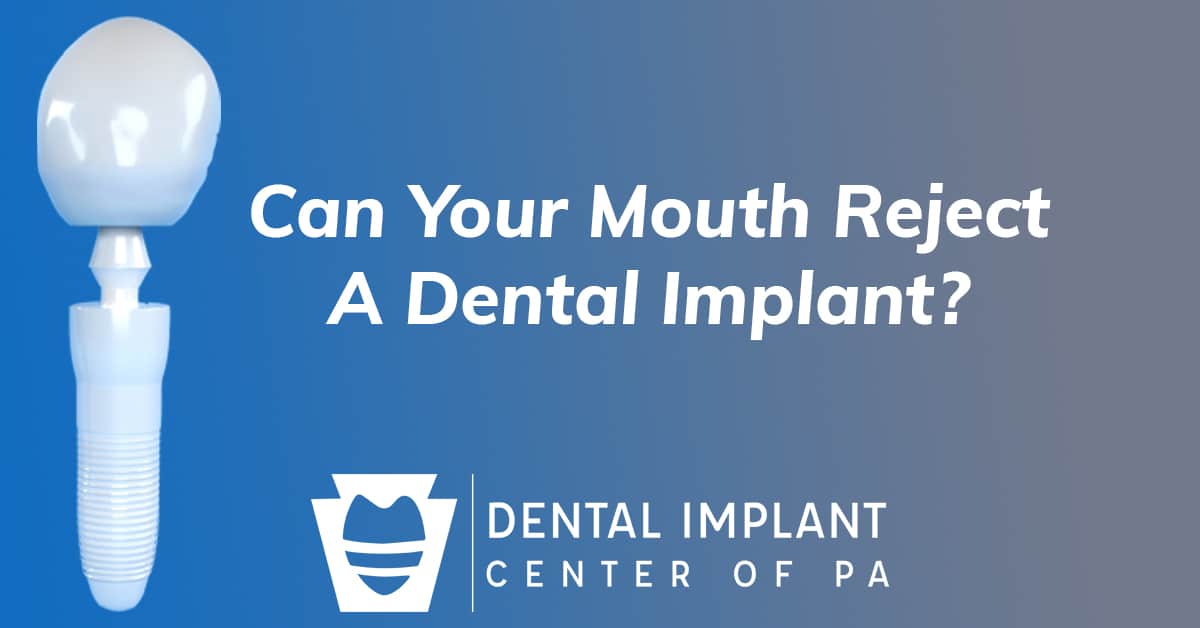Dental Implants can be a great way to replace missing teeth or for the restoration of your smile after tooth extraction. With the current technology our implant center has, we are able to create medical-grade titanium which fuses with the bone structure of your jaw. Your mouth goes through a regenerative process where your gum tissue grows around the implants and secures them within your jaw.
What are Dental Implants Made Of?
Dental implants are made up of 3 parts:
- The Titanium Implant
- The Abutment
- The Crown/Replacement Tooth
Though unlikely if approved for a procedure, at each stage of the dental implant process there is a slight possibility for a dental implant failure. The titanium material used in a majority of dental implants is one of the best that can be used. However, it is still possible for patients to be allergic and reject it or for the biological growth process to be hindered.
How Can My Mouth Reject A Dental Implant?
The chances of your mouth rejecting an implant are low, but not impossible. The resulting titanium residue from an implant has the possibility to cause a variety of reactions if you are allergic. The most notable of these being bone loss and hypersensitive reactions.
Look Out For These Types Of Reactions Around The Implant Area:
- Unnatural Redness
- Swelling and/or Pain
- Loss Of Bone In Surrounding Areas Of The Implant
- Itchiness around the implant area
- Loose Implant → Most likely your oral surgeon or dentist will recognize this issue before you do, however, if you feel the movement of the implant in your mouth consistently that is a big sign of implant failure.
Your body may reject or improperly synthesize with a dental implant for other reasons as well related to underlying health factors.
How Can I Help Prevent A Dental Implant Rejection?
There are deciding factors that can affect the probability of a dental implant rejection. These include:
- Improper Aftercare → It is very important to keep proper care of yourself after your treatment. Brushing and washing your mouth with an alcohol-free antibacterial mouthwash is the way to go.
- Smoking → This is a big one, patients who smoke have a much higher rate of failure compared to other patients due to the substances in cigarettes which cause the healing process to be slowed and an increase in infections. If you are set on having the procedure, it may be recommended that you stop smoking until the initial fusing process is finished.
- Bruxism (grinding of teeth) → This can be very harmful as it breaks down the strength of your jaw bone and can negatively affect gum tissue.
- Gum Disease → Periodontitis (gum disease) directly affects the gum and jaw bone area, damaging the area healing around the implant.
- Osteoporosis → illnesses that affect bone density and development can cause failure of the screw to securely fasten within your jaw bone.
You can always communicate with your oral surgeon any concerns you may have. If you are a candidate for dental implants, these types of issues should come up during the initial treatment coordination phase. If for some reason your condition changes between that period and the surgery, be sure to let them know.







